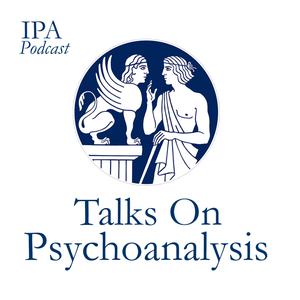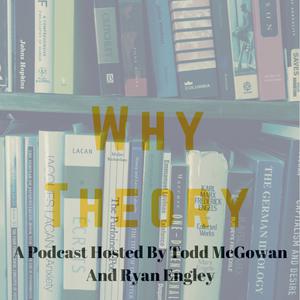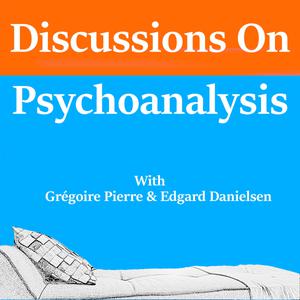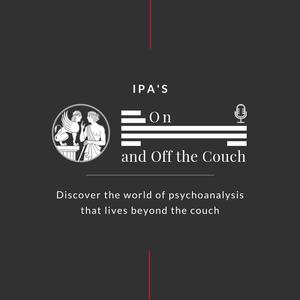
Talks On Psychoanalysis
International Psychoanalytical Association
- 28 minutes 36 secondsThe Desire and Passion for a Child - Dr. Patricia Alkolombre
In today’s context of reproductive technologies, one has the idea that we might have more control over the process of reproduction. No longer necessarily linked to sexuality, reproduction and parenthood can occur in a multitude of ways, pushing the boundaries of what was not thought to be possible or acceptable. These biotechnical innovations have not only changed the ways that one can become a parent but also necessarily suggest new areas for psychoanalytic theorizing.
In this podcast episode, Dr. Patricia Alkolombre discusses how the desire for a child has become in some cases, the passion for a child “at any price”, made more urgent and concentrated as the biotechnical innovations offer us the sense that we have control over our bodies and their reproductive and gestational functions in new ways. She discusses what this means for psychoanalytic understandings of gender, parenthood, femininity, loss, disappointment, narcissism and our understandings of ourselves and how this new era of reproduction ushers in a new set of clinical issues.
Dr. Patricia Alkolombre holds a PhD in Psychology from the University of Salvador. She is a Training and supervising analyst of the Argentine Psychoanalytic Association and is the current Overall Chair of the IPA Committee on Women and Psychoanalysis. She gives seminars in many post-graduate institutions and mental health centers in Buenos Aires and in psychoanalytic institutions abroad, among them are the Psychoanalytic Association of Guadalajara, the Brazilian Society of Porto Alegre, Brazil.
She is the author and editor of several books. Among them are: The Desire and Passion for a Child: Psychoanalysis and Contemporary Reproductive Techniques (Routledge, 2023) in Spanish and english. She is also the author and the editor of the book Travesías del cuerpo femenino (2012) (Declared of Interest in Culture and Health by the Legislature of the City of Buenos Aires).
She is co-author of Changing sexualities and parental function in the twenty first century (Routledge 2017) and of Psychoanalytic Explorations of what women want today: femininity, desire, and agency (Routledge 2022).
A subtitled version of this podcast is available on our YouTube channel:
https://youtube.com/playlist?list=PLhxiwE76e0QaOquX3GujdwNLFsgxUQNXz&si=yf381EDu3pess6Yz
You can download a copy of the paper here:
https://docs.google.com/document/d/1j-ANLupJF6b44NVmlC0XSfMMml7-sprb/edit?usp=sharing&ouid=100400904585889441765&rtpof=true&sd=true
This Podcast Series, published by the International Psychoanalytical Association, is part of the activities of the IPA Communication Committee and is produced by the IPA Podcast Editorial Team. Co-Editors: Gaetano Pellegrini and Nicolle Zapien. Editing and Post-Production: Massimiliano Guerrieri.
To stay informed about the latest podcast releases, please sign up today.This episode has also been published in Spanish.
This episode has also been published in Portuguese.
21 August 2024, 6:00 am - 22 minutes 40 secondsFreud, his passion for travel, and its impact on psychoanalytic discoveries - Patricia O'Donnell
What is it that is so captivating about travel? In Freud’s travel letters chronicling his experiences over many decades in different countries, there are the seeds of the advance of non-clinical experiences of psychoanalysis. Travel takes us to another place with unfamiliar surroundings so that we might see anew that which we may otherwise take for granted. Awe and beauty are often experiences we have while abroad. And these are described by Freud over and over again in these captivating letters.
In this podcast episode, Dr. Patricia O’Donnell discusses Freud’s travel letters and his musings on the pleasures of travel, art, and architecture, as experiences that inspire awe and transcendence. She links these experiences to the unconscious fantasizing that stems from curiosity, rooted in infantile sexuality and that gives rise to the desire to know and triggers of experiences of passion.
Dr. Patricia O’Donnell is a psychiatrist, a full member and training analyst of the Argentine Psychoanalytic Association and a member of the International Psychoanalytic Association. She is also an Associate Professor at the Department of Mental Health at the Hospital de Clinicas Jose de San Martin. She has presented papers at national and international conferences and delivered workshops and lectures on psychoanalytic art research. She has written numerous articles and co-authored books on topics ranging from psychoanalysis and creativity, art and literature.
A subtitled version of this podcast is available on our YouTube channel:
https://youtube.com/playlist?list=PLhxiwE76e0QaOquX3GujdwNLFsgxUQNXz&si=yf381EDu3pess6Yz
You can download a copy of the paper here: https://docs.google.com/document/d/1-dthE_sMLxYjtDl4uWWTuEdYD4THtjSN/edit?usp=share_link&ouid=100400904585889441765&rtpof=true&sd=true
This Podcast Series, published by the International Psychoanalytical Association, is part of the activities of the IPA Communication Committee and is produced by the IPA Podcast Editorial Team. Co-Editors: Gaetano Pellegrini and Nicolle Zapien. Editing and Post-Production: Massimiliano Guerrieri. To stay informed about the latest podcast releases, please sign up today.This episode has also been published in Spanish.
25 June 2024, 5:00 am - 22 minutes 16 secondsInanimate Objects in the Frame - Jacqueline Godfrind
What roles do the inanimate objects in the psychoanalyst’s office play in the treatment? Paintings on the walls, bookcases, armchairs, carpets, sculptures, and of course, the couch are simultaneously objects of external reality which are part of the frame, and they may also become part of the internal reality of the patient. Can these objects have an important effect on the progress and process of analytic treatment? It is these questions that Jacqueline Godfrind will address in this podcast episode.
Starting from theories of objects as autistic, transitional, resemblances and fetishized, put forth by Tustin, Winnicott, Searles and Kestemberg, she will broaden the reflection based on her own clinical observations of her analysands during a period when she redecorated her office. These objects, she illustrates, can become transferential objects, rich with important meanings and may support sensory or archaic investments, and this is even more the case in certain patients with fragile structures.
Jacqueline Godfrind is a full member and training analyst of the Belgian Society of Psychoanalysis of which she was scientific secretary, president and president of the teaching commission. She has long participated in training in child psychotherapy where she was a lecturer at the Free University of Brussels. She has further led multiple supervisions in various fields. In addition, she has a background as a child analyst and a long practice as an adult psychoanalyst. Her writings and publications are many including: The two currents of transference and Psychoanalysis beyond speech - the body which contain her reflections on the treatment clinic, and How femininity comes to women which addresses her interest in the feminine. She has participated in the production of several collective works, notably on topics as wide ranging as acting out in the treatment, and also in the work titled What is operative in the treatment, which won the Oedipus prize.
A subtitled version of this podcast is available on our YouTube channel: https://youtube.com/playlist?list=PLhxiwE76e0QaOquX3GujdwNLFsgxUQNXz&si=yf381EDu3pess6Yz
You can download a copy of the paper here: https://docs.google.com/document/d/1zzvBBjMdz5zs5RuFg3MswZfvuINkmNSp/edit?usp=share_link&ouid=100400904585889441765&rtpof=true&sd=true
This Podcast Series, published by the International Psychoanalytical Association, is part of the activities of the IPA Communication Committee and is produced by the IPA Podcast Editorial Team. Co-Editors: Gaetano Pellegrini and Nicolle Zapien. Editing and Post-Production: Massimiliano Guerrieri. This episode has been produced in collaboration with Julia-Flore Alibert. To stay informed about the latest podcast releases, please sign up today.This episode has also been published in French.
22 May 2024, 5:00 am - 22 minutes 38 secondsArtificial Intelligence and psychoanalysis: meeting the future. - Rosa Spagnolo.
How can neuropsychoanalysis help us to understand Artifical Intelligence? We encounter Artificial Intelligence everyday, which is modeled to a certain extent on human consciousness, and so AI gives us a view into what we know and what we may not know about ourselves. In addition, we now develop our sense of self and others both within the virtual and material worlds – AI could be said therefore to not only be modeled on human consciousness, but it is also impacting our development.
In this podcast episode, Dr. Rosa Spagnolo discusses consciousness, artificial intelligence and the development of superintelligent AI. She considers what this implies for human and AI development, identifications, subjectivity, and suffering, leveraging neuropsychoanalytic understandings of the mind.
Dr. Rosa Spagnolo is a child neuropsychiatrist, developmental psychotherapist and psychoanalyst member of the Italian Psychoanalytic Society and the IPA. She is co-chair and co-founder of the Italian Psychoanalytic Dialogues Association. Dr. Spagnolo is a member, regional coordinator and chair of the Italian group of the International Neuropsychoanalysis Society. She teaches at several institutions and is a sought-after speaker at national and international conferences. She has written several books and articles on a variety of topics including: Eating disorders, group analytic psychotherapy, neuropsychoanalysis, and neuropsychiatric developmental disorders. She was nominated for the Gradiva award in 2019.
A subtitled version of this podcast is available on our YouTube channel:
https://youtube.com/playlist?list=PLhxiwE76e0QaOquX3GujdwNLFsgxUQNXz&si=yf381EDu3pess6YzYou can download a copy of the paper here: https://docs.google.com/document/d/1DYtz3e3Dq9WC8qGhH3KqkCrM4ejPAINj/edit?usp=sharing&ouid=100400904585889441765&rtpof=true&sd=true
This Podcast Series, published by the International Psychoanalytical Association, is part of the activities of the IPA Communication Committee and is produced by the IPA Podcast Editorial Team.
Head of the Podcast Editorial Team: Gaetano Pellegrini.
Editing and Post-Production: Massimiliano Guerrieri.This episode has been published also in French
This episode has been published also in Italian
16 April 2024, 5:30 am - 31 minutes 51 secondsThe loss of illusions. How does the analyst mourn? - Marc Hebbrecht.
How does a psychoanalyst grapple with the sudden impact of a traumatic loss in their personal life, and how does it reverberate in their professional capacities? How do analysts navigate the challenges associated with illness or the inevitable effects of aging?Moving beyond the various losses in real life, analysts face the challenge of dealing with the loss and mourning of their illusions—illusions of immortality and invulnerability. Analysts are tasked with confronting their own finitude and limits, contemplating how to approach and address them.
In this podcast episode, Marc Hebbrecht delves into the nuanced scenarios of loss and disillusionment that psychoanalysts encounter throughout their careers, drawing insights from Nanni Moretti's film “La Camera del Figlio”, as an illustrative example.
Marc Hebbrecht is a psychiatrist and psychoanalyst. He is a full member, training analyst and current president of the Belgian Psychoanalytical Society (SBP). He lives in Tongeren, Belgium, and works in private practice and at the Leuven University Hospital for Psychiatry in Kortenberg, near Brussels. He was editor-in-chief of the Dutch Journal of Psychoanalysis. He teaches psychoanalytic psychotherapy at the University of Leuven and integrative psychotherapy at the University of Antwerp. He has written several books and published in major international psychoanalytical journals. His areas of interest are dreams, narcissism, erotic transference and psychoanalytic nosography.
Link to download the paper https://docs.google.com/document/d/1-Nyy_48pCt2QFuxA14lu3PbToGT6g9k-/edit?usp=share_link&ouid=112457875385152358388&rtpof=true&sd=true
A subtitled version of this podcast is available on our YouTube channel:
https://youtube.com/playlist?list=PLhxiwE76e0QaOquX3GujdwNLFsgxUQNXz&si=yf381EDu3pess6YzThis episode has been produced in collaboration with Julia-Flore Alibert.
This Podcast Series, published by the International Psychoanalytical Association, is part of the activities of the IPA Communication Committee and is produced by the IPA Podcast Editorial Team.
Head of the Podcast Editorial Team: Gaetano Pellegrini.
Editing and Post-Production: Massimiliano Guerrieri.This episode is available also in French
1 February 2024, 6:00 am - 29 minutes 2 secondsBernard Penot - The act of the psychoanalyst in the service of subjectivation
What does a psychoanalyst do in his practice with his patients? How can we define the act of the psychoanalyst at work? It is this vast question that Bernard Penot addresses in this podcast, talking about the act of the psychoanalyst in the service of subjectivation. Referring to Freud's work on transference and then to Lacan's work on the psychoanalytical act during the years of student revolts in France in may 1968, he manages to show us the active involvement of the psychoanalyst in the practice of the cures he provides.
Bernard Penot is a french psychoanalyst. He lives and works in Paris. He has been a full member and training analyst of the Paris Psychoanalytical Society since 1990. As neuropsychiatrist, he was the director of a day hospital for adolescents in Paris for many years. He is the author of several books published in french, and of numerous articles published in the French journal of psychoanalysis and the International journal of psychoanalysis.
Link to the paper https://docs.google.com/document/d/1YtXzBF8rEX4-Gpf6tGsajv6-tShQxbwT/edit?usp=sharing&ouid=112457875385152358388&rtpof=true&sd=true
This episode is available also in French
A subtitled version of this podcast is available on our YouTube channel:
https://youtube.com/playlist?list=PLhxiwE76e0QaOquX3GujdwNLFsgxUQNXz&si=yf381EDu3pess6YzThis episode has been produced in collaboration with Julia-Flore Alibert.
This Podcast Series, published by the International Psychoanalytical Association, is part of the activities of the IPA Communication Committee and is produced by the IPA Podcast Editorial Team.
Head of the Podcast Editorial Team: Gaetano Pellegrini.
Editing and Post-Production: Massimiliano Guerrieri.Music: Chopin_Waltzes_Op.69. Performer Olga Gurevich. https://musopen.org/music/4415-waltzes-op-69/
Cover Image: Blue human figure and fox in cage on black paper. Blum, Alexandra, artist - Courtesy Library of Congress. https://hdl.loc.gov/loc.pnp/pp.print
22 January 2024, 6:52 pm - 34 minutes 6 secondsThe place of sexuality in psychoanalytic treatment and training today - Rotraut De ClerckThe place of sexuality in psychoanalytic treatment and training today: Can we observe a disappearance of sexuality in case reports and supervisions?
Link to the paper https://docs.google.com/document/d/1jwtEt3rBf0BSGsl_uFxv6xwVrPPr_dvR/edit?usp=drive_link&ouid=112457875385152358388&rtpof=true&sd=true
This episode is available also in:
A subtitled version of this podcast is available on our YouTube channel:
https://youtube.com/playlist?list=PLhxiwE76e0QaOquX3GujdwNLFsgxUQNXz&si=yf381EDu3pess6YzThis Podcast Series, published by the International Psychoanalytical Association, is part of the activities of the IPA Communication Committee and is produced by the IPA Podcast Editorial Team.
Head of the Podcast Editorial Team: Gaetano Pellegrini.
Editing and Post-Production: Massimiliano Guerrieri.14 December 2023, 6:00 am - 24 minutes 16 secondsRelentlessness Of Life Instinct As The Source Of Inconsolability And Greed - Salman Akhtar
Still Life with Fruit and Wineglasses on a Silver Plate, c. 1659-1660, Willem Kalf. Courtesy Mauritshuis, The Hague.Why do some people seem unable to achieve full satisfaction in things? What keeps them dissatisfied even after achieving their goals? And why does the Ego persist in avoiding mourning and sticking to the same solutions?
In this episode of the IPA Talks On Psychoanalysis podcast series, Salman Akhtar presents his theory that redefines the classical Kleinian conception of the rupture between Gratification and Satisfaction as a consequence of the death instinct derived attack upon the provider of gratification. This should indeed lead us to the search for a state of tranquility rather than an increase in tension. What role does the Life Instinct, instead, play in this restless search, in this excessive intense refusal to believe that further gratification shall not result in satisfaction?
This exploration not only offers a theoretical perspective but also has profound implications for clinical practice and our understanding of psychoanalytic technique.
The episode we share with you today is sourced from the wealth of content presented at the 53rd IPA Congress in Cartagena. It was a part of the "Fanning the Flames" Panel, featuring Salman Akhtar, alongside Cordelia Schmidt-Hellerau, Claudia Antonelli, and moderated by Fred Busch. We are delighted to announce the opportunity to watch the complete panel, along with many other outstanding presentations from the Cartagena Congress, on the www.ipa.world website.
Salman Akhtar, MD is an internationally known psychiatrist, psychoanalyst, writer, and poet based in the United States. He has published 108 authored or edited books and given lectures and workshops in over 40 countries. Dr.Akhtar has served on the editorial boards of the three most important journals of our field, namely Journal of the American Psychoanalytic Association (JAPA), IJP, and The Psychoanalytic Quarterly PQ. His books have been translated in many languages and he has received numerous professional honors, including the highly prestigious Sigourney Award for Distinguished Contributions to Psychoanalysis. Recently a 10-volume set of his Selected Papers was released at a festive ceremony at the Freud House& Museum in London. Dr. Akhtar has published 18 collections of poetry and serves as a Scholar-in-Residence at the Inter-Act Thater Company in Philadelphia.
A subtitled version of this podcast is available on our YouTube channel:
https://youtube.com/playlist?list=PLhxiwE76e0QaOquX3GujdwNLFsgxUQNXz&si=yf381EDu3pess6Yz
3 November 2023, 5:30 am - 31 minutes 41 secondsBernard Golse - A plea for a third topicality.A plea for a third topicality.
An intrapsychic representation of the intersubjective bond,
even before the discovery of the object.Can psychoanalysis be useful with infants? How can we think through concepts of metapsychology with infants? The two Freudian topics are in reference to the instances which are fruit of the completed intrapsychic differentiation process. How can they be useful with infants, who by nature are still undifferentiated and unfinished? In this episode Bernard Golse presents us with his arguments for a third topical approach. Drawing on his extensive experience of parent-infant therapy, he proposes a metapsychology of the primitive pre-object bond, a perinatal topic of mental representation of the intersubjective bond prior to differentiation of instances and object discovery.
Bernard Golse is a child psychiatrist and psychoanalyst (member of the Association Psychanalytiquede France) and Professor Emeritus of Child and Adolescent Psychiatry at the Université Paris Cité. For many years he was head of the Child Psychiatry Department at the Necker-Enfants MaladesHospital in Paris. Among other associative activities, he is presently chair of the European Association of Child and Adolescent Psychopathology and he recently founded the Institut Contemporain de l'Enfance to promote psychological care and support for infants, children, and adolescents, with reference to psychoanalysis, psychopathology and pedagogy with links to the world of arts and culture because of the dialectic that exists between therapeutic creativity and artistic creativity. The three areas in which he has been most involved are early infant development, autism spectrum disorders and adoption issues. He is therefore particularly focused on the question of links.
A subtitled version of this podcast is available on our YouTube channel:
https://youtube.com/playlist?list=PLhxiwE76e0QaOquX3GujdwNLFsgxUQNXz&si=yf381EDu3pess6YzThis episode has been produced in collaboration with Julia-Flore Alibert.
This Podcast Series, published by the International Psychoanalytical Association, is part of the activities of the IPA Communication Committee and is produced by the IPA Podcast Editorial Team.
Head of the Podcast Editorial Team: Gaetano Pellegrini.
Editing and Post-Production: Massimiliano Guerrieri.You can download the written text of this paper from this link:
https://docs.google.com/document/d/12dvhD8riz2DSwqYN7a8qOmbIQYndYUyF/edit?usp=drive_link&ouid=112457875385152358388&rtpof=true&sd=true
This episode is available also in French
Recommended Links and Readings:
S. Missonnier and B. Golse, The third topography: a topography of the bond, 89-114. In : Autistic phenomena and unrepresented states – Explorations in the emergence of Self (edited by H.B. LEVINE and J.SANTAMARIA).
Phenix Publishing House Ltd, “Firing the mind”, A.Santamaria Picoanálisis México, Oxfordshire, 2023
12 October 2023, 9:47 am - 37 minutes 1 secondThe distorted Oedipus complex - François Richard
How can we think about the Oedipus complex today in a contemporary society beset by a crisis of ideals and the emergence of new forms of sexuality? Neurosis has not disappeared, but borderline states have become a prevalent adaptive mode in a world lacking solid authority figures and sinking into symbolic misery.
In this episode, François Richard is proposing his concept of the distorted Oedipus complex. Beginning with theoretical conceptions of Freud and then of his successors, he is suggesting that a specific form of the infantile oedipus complex persisting in adolescents and adults, give us a better understanding of borderline patients.
François Richard is a psychoanalyst and a member of the Paris Psychoanalytical Society. He is a psychoanalyst in private practice in Paris and has worked for many years in various medical and psychological institutions. As a clinical psychologist, he has also studied social sciences, which broadens his reflection on the impact of social factors on individual psychology. Professor of psychopathology at the Université Paris Cité, he has directed numerous theses and colloquiums, and at one time edited the journal Adolescence. He is the author of several books that have been subject of debates, including Le Processus de subjectivation à l'adolescence (2001), L'actuel malaise dans la culture (2011) and Le Surmoi perverti. His current research focuses on the current crisis of civilisation, the processes of sublimation (particularly in literature), sexual polymorphism, borderline states, and the relationship between frame and countertransference in the face of what he proposes to think of as a structurally deformed Oedipus complex.
Link to the paper https://docs.google.com/document/d/1ju6QxykJe0UK0JBu3QcLdzHZQOveq3HF/edit?usp=share_link&ouid=112457875385152358388&rtpof=true&sd=true
This episode is available also in French
This Podcast Series, published by the International Psychoanalytical Association, is part of the activities of the IPA Communication Committee and is produced by the IPA Podcast Editorial Team. Editor Gaetano Pellegrini.
This episode was curated by Julia-Flore Alibert. Introduction written and read by Julia-Flore Alibert.
Sound Engineer: Massimiliano Guerrieri.12 June 2023, 5:00 am - 21 minutes 38 secondsTime matters - the self and its continuity. Georg Northoff.
Our self is always there and present throughout our whole life. Despite the many social, environmental and ecological changes as well as the major bodily changes, our self remains one and the same throughout the changes of our life. Where and how is the temporal continuity of our self coming from?
Georg Northoff is a philosopher, neuroscientist and psychiatrist, holding degrees in all three disciplines. He works in Ottawa/Canada holding a Canada Research Chair for Mind, Brain Imaging, and Neuroethics. His research focuses on the relationship between brain and mind. The question driving him is: “why and how can our brain construct mental features like self, consciousness, etc.” His approach to this complex answer is as unique as it is simple: he proposes that the brain’s constitutes its own inner time and space which, if properly aligned to and synchronized with the world’s outer time and space, will yield mental features like self and consciousness. This led him to develop a spatiotemporal theory of brain-mind relationship in all three fields, neuroscience, psychiatry and philosophy.
He is one of the leading figures in linking philosophy, psychiatry, and neuroscience having developed non-reductive neurophilosophy. He authored over 300 journal articles and 18 books in neuroscience, psychiatry and philosophy which are translated into several languages including “Neuro-philosophy and the Healthy Mind” (2016) Norton Publisher, and “Neurowaves" (McGill University Press 2023) and "Neuropsychoanalysis, an introduction" (Routledge 2023).
This episode is available also in German
All papers etc, can be found on the website: www.georgnorthoff.com
See recent Podcast for broader audience: www.youtube.com/watch?v=lDX3xOVHB18&t=237s
References:
Spagnolo R, Northoff G (2022) The dynamic self in psychoanalysis. Routledge
Northoff G (2023) Neuropsychoanalysis. An introduction. Routledge publisher
Northoff G (2023) Neurowaves. Brain, time and consciousness. McGill University Press
Northoff G, Scalabrini A. (2021) "Project for a Spatiotemporal Neuroscience" - Brain and Psyche Share Their Topography and Dynamic.
20 April 2023, 5:30 am - More Episodes? Get the App
Your feedback is valuable to us. Should you encounter any bugs, glitches, lack of functionality or other problems, please email us on [email protected] or join Moon.FM Telegram Group where you can talk directly to the dev team who are happy to answer any queries.
 Why Theory
Why Theory
 This Jungian Life Podcast
This Jungian Life Podcast
 Discussions On Psychoanalysis
Discussions On Psychoanalysis
 Psychoanalysis On and Off the Couch
Psychoanalysis On and Off the Couch
 New Books in Psychoanalysis
New Books in Psychoanalysis